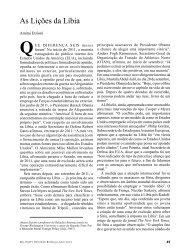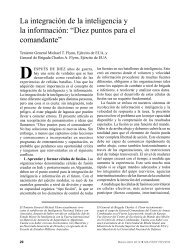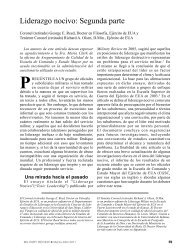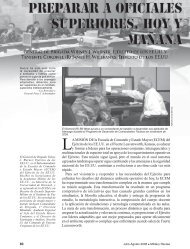Field Ordering Officer and Paying Agent Handbook - US Army ...
Field Ordering Officer and Paying Agent Handbook - US Army ...
Field Ordering Officer and Paying Agent Handbook - US Army ...
You also want an ePaper? Increase the reach of your titles
YUMPU automatically turns print PDFs into web optimized ePapers that Google loves.
CENTER FOR ARMY LESSONS LEARNED<br />
concise (avoid jargon). Above all, keep a professional working relationship.<br />
Consider cultural factors but discern the difference between culture <strong>and</strong> excuses.<br />
Some thoughts on using an interpreter:<br />
Speak in the first person.<br />
Remain in close proximity when you are speaking.<br />
Carry a notepad <strong>and</strong> take notes, as needed.<br />
Ask questions when not sure of a term, phrase, concept, acronym, etc.<br />
Project clearly <strong>and</strong> mirror both your vocal stresses <strong>and</strong> overall tone.<br />
Refrain from becoming engaged in a tangent dialogue with your<br />
audience. Do not become an advocate or mediator in the dialogue;<br />
ideally, the interpreter should remain invisible.<br />
Try to spend a little time with the interpreter before the event begins. The<br />
speaker <strong>and</strong> interpreter should not work together “cold.”<br />
There is no need to use “Me Tarzan, You Jane” style sentences. Just be<br />
aware <strong>and</strong> allow time for the interpreting process.<br />
Be constantly attuned to your audience’s comprehension level—slow<br />
down, repeat, or elaborate as needed. Test the audience <strong>and</strong> the<br />
interpreter.<br />
Do not distract the interpreter by passing notes, whispering, or carrying<br />
on side conversations.<br />
Pictures are worth a thous<strong>and</strong> words, but rehearse <strong>and</strong>/or translate with<br />
the interpreter in advance.<br />
Both you <strong>and</strong> the interpreter must stay attuned to cultural awareness <strong>and</strong><br />
sensitivity; do not fall prey to condescension.<br />
If your interpreter does not look good, you do not look good. While it is<br />
his responsibility to do an excellent job for you, know how you can assist<br />
him in doing so.<br />
Tip: If you do not have an interpreter assigned to your unit, ask your supporting<br />
contracting office for temporary assistance.<br />
Carefully Select the Vendor<br />
Local leaders are a ready source of supplies <strong>and</strong> may be the only available source.<br />
While they can deliver supplies, using local sheiks or community leaders as supply<br />
sources can create numerous problems. The FOO is not an operations officer or<br />
comm<strong>and</strong>er. However, local community leaders often confuse roles <strong>and</strong> will ask<br />
FOOs to help them with operational problems. The FOO may find himself<br />
complicating relationships between the comm<strong>and</strong> <strong>and</strong> the civilians in the area of<br />
32<br />
Approved for Public Release<br />
Distribution Unlimited
















